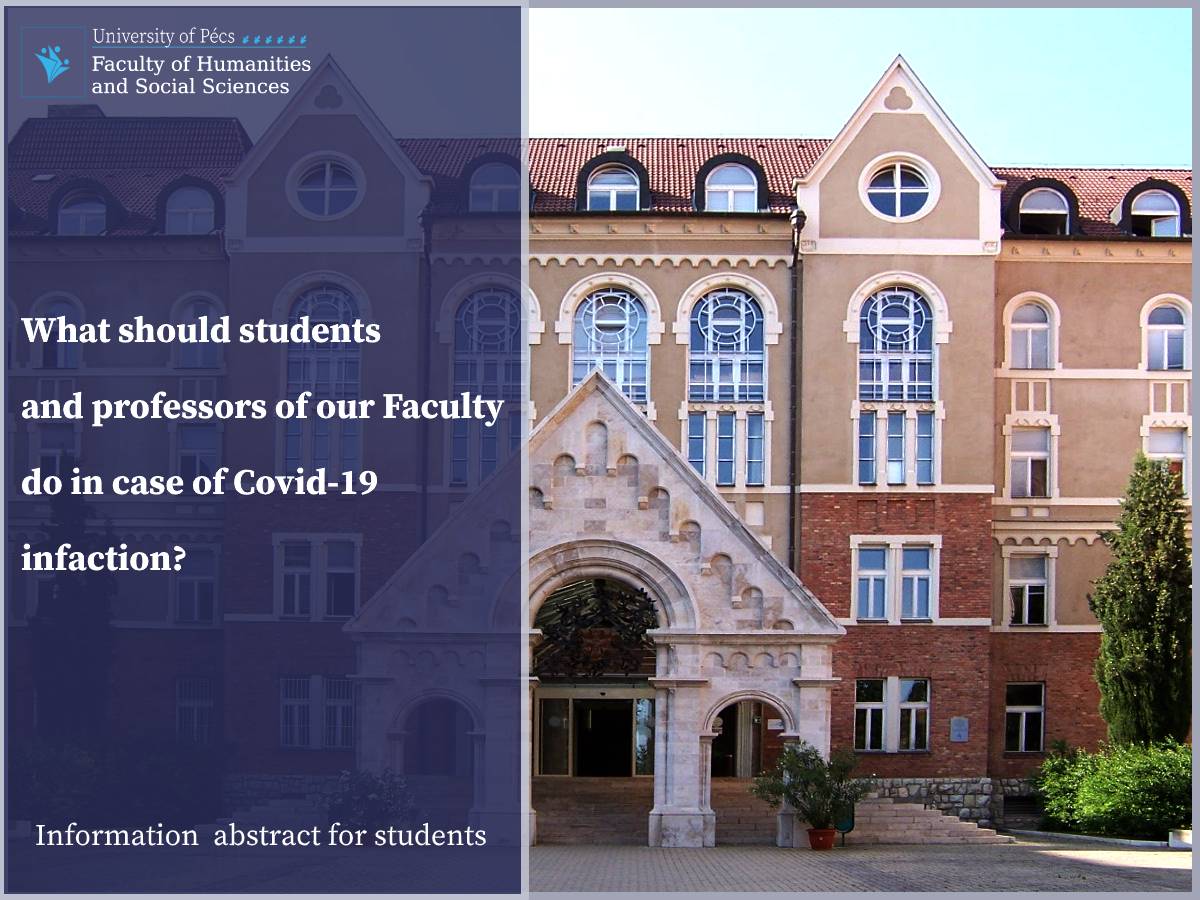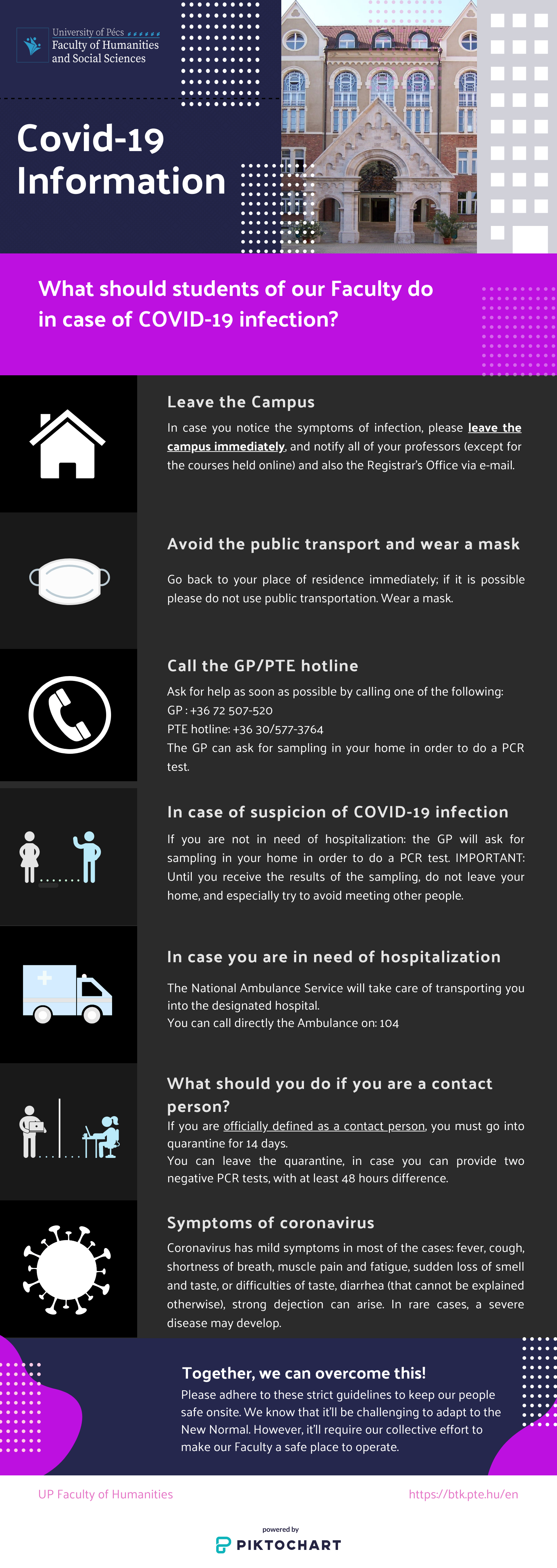Guidance in case of coronavirus infection

Students are only allowed to enter the University campus if they do NOT notice the symptoms of COVID-19 infection on themselves. In case a student who is at the University campus notices the symptoms of infection, he/she is obliged to leave the campus immediately, and notify all of his/her professors (except for the courses held online) via e-mail. The professor must forward the notification to the Head of Department and also to the Registrar’s Office. In case the students and professors – who have spent time, in the same room with the COVID-19 positive student – are NOT defined as ‘contact person’ (see the exact definition of contact person below) then the course can be continued for them with attendance. In case somebody can be defined as a contact person, the official procedure of the national public health service comes into force.
If the professor must stay in quarantine as a result, but his/her state of health allows them to continue teaching, then with the support of the Head of Department and the acceptance of the dean, they can continue the course in an online form.
What are the symptoms of an illness caused by the novel coronavirus?
The illness caused by the novel coronavirus has mild symptoms in most of the cases: fever, cough, shortness of breath, muscle pain and fatigue, sudden loss of smell and taste, or difficulties of taste, diarrhea (that cannot be explained otherwise), strong dejection can arise. In rare cases, a severe disease may develop.
How does the novel coronavirus spread?
The virus is mostly transmitted through droplets: by coughing, sneezing and exhalation they get into the air and then to the person close-by.
What should we do in order to prevent it?
The most important is the frequent and thorough hand washing with soap, or the use of a hand sanitizer that contains at least 60% of alcohol. Wearing a mask is recommended in order to protect others!
What should you do in case you notice the symptoms on yourself?
Go back to your home or your place of residence immediately; if it is possible please do not use public transportation.
From your home or place of residence you need to call your GP on the following number:
+36 72 507-520
Who can be defined as a contact person?
It is defined as ‘low risk’ if somebody has been around the infected person when he/she did not have any symptoms, or they were around the infected for less than 15 minutes, or more than 2 meters away (even if it was in an enclosed place). In these cases the risk of infection is very low. If it turns out that somebody with a positive COVID-19 test has participated on a course (as a student, professor or a guest professor), the other participants of the course can be defined as ‘low risk contacts’ in case the course was held according to the 11/2020 dean’s instructions.
In case somebody has only passed-by the infected on the street, there is no direct risk of infection.
It is defined as ‘high risk’ if somebody lives in the same household as the infected, or they had direct physical contact, or contact with the phlegm of the infected – for example because the infected has coughed on him/her – or someone who has been around the infected for more than 15 minutes and closer than 2 meters without the usage of protective tools.
What should you do if you are a contact person?
If you have met somebody who has a positive COVID-19 test, and you are defined as a contact person, you must go into quarantine for 14 days.
The National Center for Epidemiology’s decision can terminate the quarantine, in case you can provide two negative PCR tests, with at least 48 hours difference.
What should you do if you think you have been infected with the novel coronavirus?
Ask for help as soon as possible by calling one of the following: the questions asked by your GP, the doctor on duty, the person answering the PTE hotline (+36 30/577-3764) or the ambulance doctor can confirm or rule out the possibility of infection. The GP with the contribution of the National Ambulance Service can ask for sampling in your home in order to do a PCR test.
In case of suspicion of COVID-19 infection:
If you are not in need of hospitalization: the GP with the contribution of the National Ambulance Service will ask for sampling in your home in order to do a PCR test. Samples are taken from the nose and gorge. IMPORTANT: Until you receive the results of the sampling, do not leave your home, and especially try to avoid meeting other people. The results of the sampling can be affected by food and beverages, please do not eat or drink 4 hours before the expected time of sampling.
In case you are in need of hospitalization: the National Ambulance Service will take care of transporting you into the designated hospital

Pécsi Tudományegyetem | Kancellária | Informatikai és Innovációs Igazgatóság | Portál csoport - 2020.
